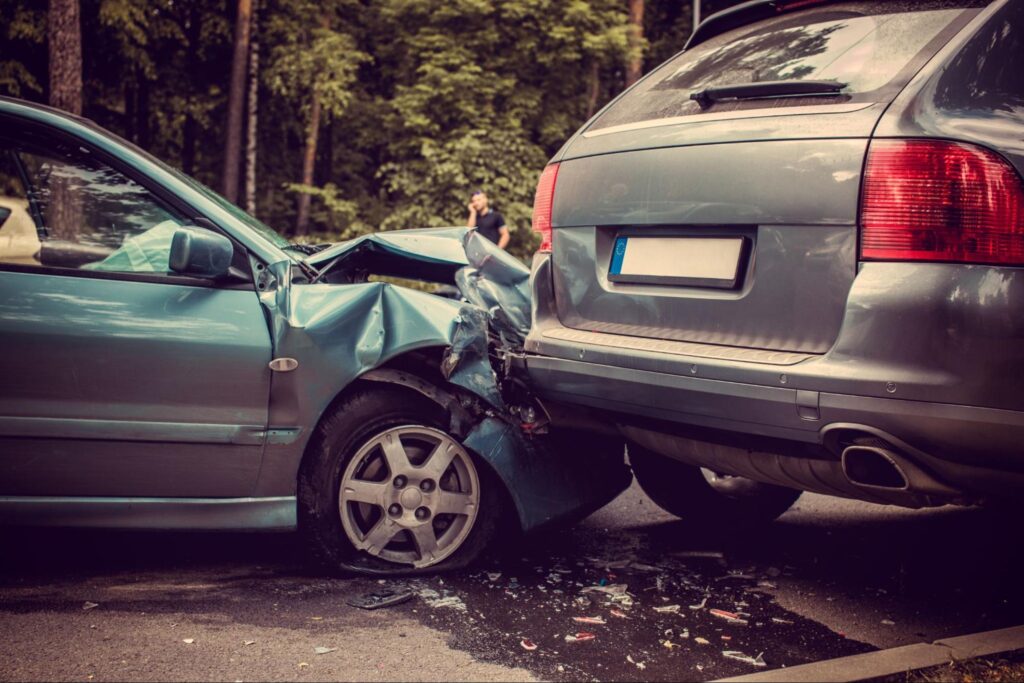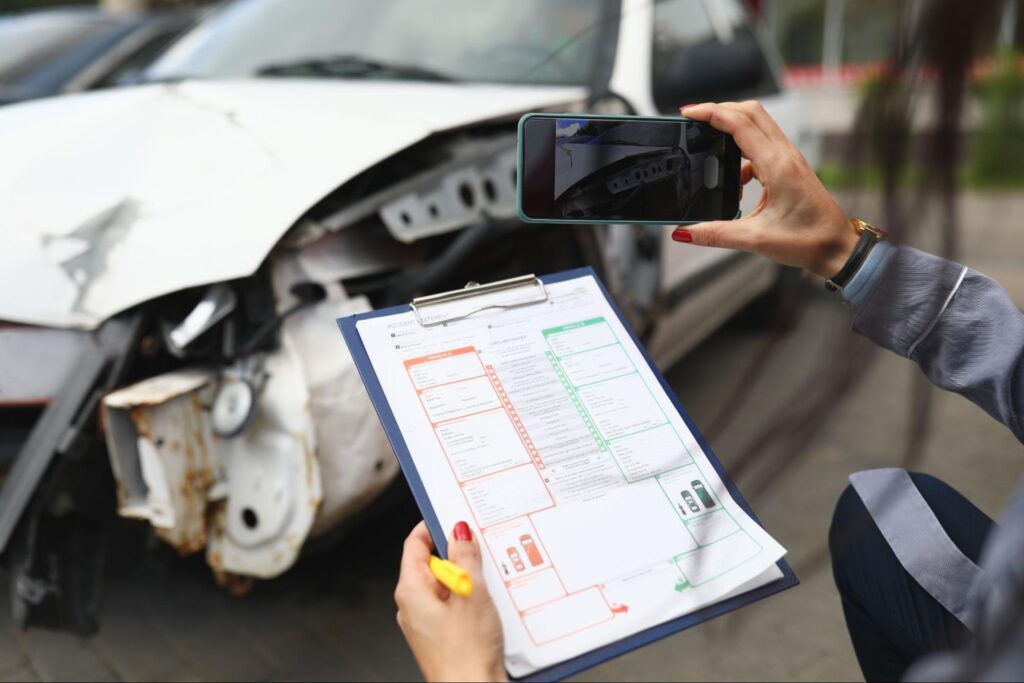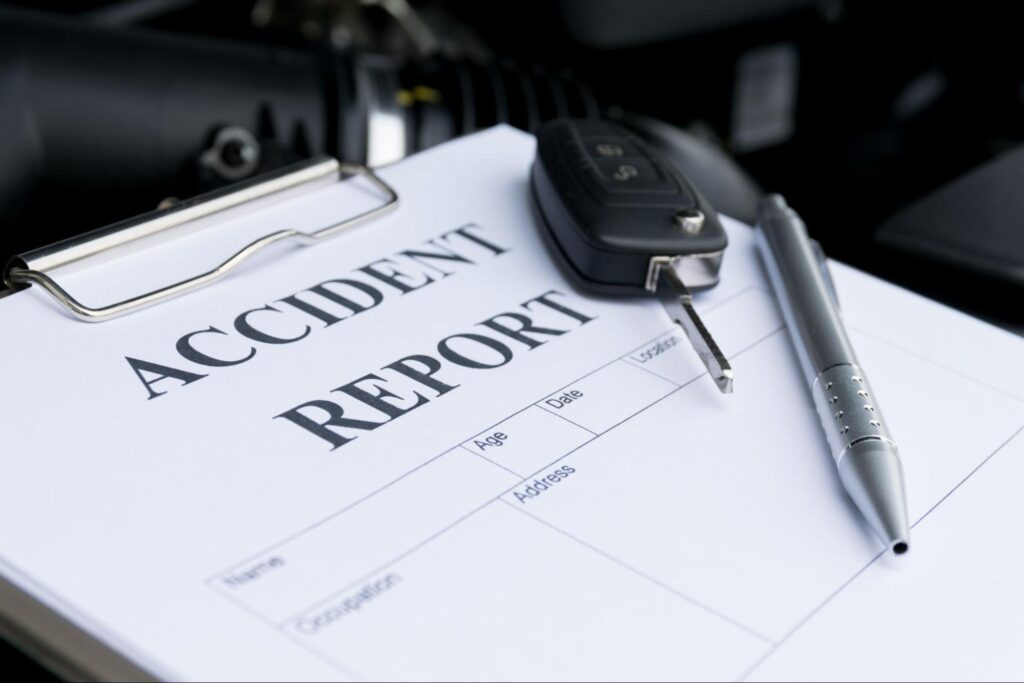
Car accidents can be life-altering events, often leaving victims with serious injuries, emotional distress, and financial woes. Whether a car accident goes to court depends on various factors, including the complexity of the accident, the extent of injuries, and disputes regarding liability.
Understanding when does a car accident go to court is crucial in helping victims navigate the aftermath of an accident more effectively.
Understanding the Legal Process After a Car Accident
After a car accident, individuals often navigate a series of important steps. The process typically begins with reporting the incident to the authorities and notifying insurance companies.
From there, it involves gathering evidence, negotiating with insurers, and, if necessary, pursuing legal action to resolve disputes. If you’re feeling uncertain or overwhelmed by the legal process, don’t hesitate to contact Howe Law for expert guidance and support.
The Role of Insurance Companies
Insurance companies are critical players in the aftermath of an accident. They evaluate claims, determine liability, and establish compensation amounts. In many cases, victims rely on their insurance providers to cover medical expenses, vehicle repairs, and other costs associated with the accident.
However, insurance companies often prioritize their profit margins over fair compensation. This can lead to disputes regarding the extent of damages, causing victims to consider legal action. Understanding the intricacies of the insurance process is vital to ensuring fair treatment.
Victims should also be aware of the deadlines for filing claims, as missing these deadlines can jeopardize their ability to receive compensation. Each state has its statute of limitations, which dictates how long an individual must file a claim after an accident.
Determining Fault in a Car Accident
Determining who is at fault in a car accident is crucial, as it impacts the outcome of insurance claims and potential lawsuits. Fault can be assessed through various means, including police reports, eyewitness accounts, and traffic camera footage.
In some states, the concept of comparative negligence applies, meaning fault can be shared among parties involved in an accident.
If the fault is disputed between parties, taking the case to court to resolve the matter may become necessary. In such cases, presenting factual evidence will be critical in establishing liability.
This may include expert testimony from accident reconstruction specialists, who can analyze the circumstances of the crash and provide insights into how the accident occurred. Additionally, gathering medical records and documentation of injuries sustained can further support a victim’s claim and clarify the impact of the accident on their life.
The Importance of Legal Representation
Legal representation is essential for navigating the complexities of the car accident claims process. A qualified attorney not only understands the laws pertinent to car accidents but can also provide critical guidance on effectively handling negotiations with insurers or representing a victim in court.
Moreover, an attorney can help determine the full extent of damages owed, fighting for compensation that covers medical bills, lost wages, and pain and suffering. Representation can significantly impact the outcome of a case, making it imperative for victims to consider hiring legal counsel.
Attorneys can also assist in gathering necessary evidence, such as obtaining police reports and witness statements, which can be pivotal in building a strong case.
Furthermore, they can offer insights into the potential long-term effects of injuries, ensuring that victims seek compensation that reflects not just immediate costs but also future medical needs and lifestyle changes resulting from the accident.
Circumstances That May Lead to Court
Certain circumstances surrounding an accident may necessitate a court appearance. While many cases are resolved through negotiation and settlement, specific situations often escalate to litigation.
Disputes Over Liability
Legal intervention may be needed when parties involved in a car accident disagree over who is at fault. If negotiations between insurance companies fail to resolve the liability issue, a victim may opt to pursue a lawsuit.
These disputes can be particularly contentious if multiple vehicles are involved or if there is a lack of clear evidence. In such cases, court proceedings can help establish clear responsibility.
Witness testimonies, police reports, and accident reconstruction experts may play crucial roles in determining fault. The complexity of these cases can lead to lengthy legal battles, as each party presents its evidence and arguments, often resulting in a trial that can take months or even years to resolve.
Severe Injuries or Fatalities
Accidents resulting in severe injuries or fatalities often lead to litigation. The stakes in these cases are significantly higher, influencing both the urgency and necessity of legal action. Victims who sustain long-term or permanent injuries may face overwhelming medical bills and loss of income, justifying the pursuit of compensation in court.
Additionally, cases involving wrongful death claims can arise, which are inherently complex and sensitive. Legal proceedings ensure that victims or their families are compensated and can bring closure to their tragic circumstances.
These cases often involve financial compensation for lost wages and medical expenses and emotional damages, such as loss of companionship and emotional suffering. The emotional weight of these cases can be profound, affecting not only the immediate family but also the broader community that knew the victim.
Uninsured or Underinsured Motorists
Accidents involving uninsured or underinsured drivers present unique challenges. When a driver lacks adequate insurance coverage, victims may have little recourse for recovering damages.
This situation often requires victims to consider filing a lawsuit against the at-fault driver and possibly seeking compensation through their own uninsured/underinsured motorist policy. Engaging legal counsel in these cases is vital to understanding options and effectively pursuing justice.
Moreover, the emotional toll on victims can be significant as they grapple with the frustration of navigating a system that seems to favor those who are adequately insured. Legal representation can provide guidance through the complexities of the law and a sense of empowerment, helping victims reclaim their narrative and seek the justice they deserve.
The Court Process for Car Accidents

If a car accident case goes to court, it follows a structured process designed to ensure fairness and order. Understanding this process can help manage expectations and prepare for what to anticipate.
Filing a Lawsuit
The first step in taking a car accident case to court is filing a lawsuit. This requires the plaintiff to draft and submit a complaint to the appropriate court, outlining the details of the case, including the incident, injuries sustained, and damages sought.
Once filed, the defendant will be served with the complaint, and they will have the opportunity to respond, which may include filing a counterclaim. This initiation of legal proceedings marks the beginning of the court process.
It is crucial for the plaintiff to ensure that the complaint is comprehensive and accurately reflects the circumstances of the accident, as this document sets the foundation for the entire case. Legal counsel can provide invaluable assistance in crafting a compelling complaint that addresses all necessary legal elements.
Pre-Trial Procedures
Following the filing of a lawsuit, the case enters the pre-trial phase. During this stage, both parties discover, gather evidence, and exchange information relevant to the case. This may involve depositions, interrogatories, and requests for documents.
In many cases, pre-trial motions may also be filed to resolve specific issues before trial. Mediation or settlement conferences are commonplace during this phase, as both parties often seek to resolve the matter without needing a lengthy trial.
The discovery process can reveal critical information, such as eyewitness accounts, police reports, and medical records, which can significantly influence the case’s direction. Additionally, the pre-trial phase allows both parties to assess the strengths and weaknesses of their respective positions, often leading to more informed decisions regarding settlement offers.
The Trial Phase
The case will proceed to trial if it does not settle during the pre-trial phase. Both sides will present their arguments, evidence, and witnesses to a judge or jury. The trial process can be emotionally taxing and time-consuming, as legal strategies are employed to persuade the court.
After presenting all evidence and arguments, the judge or jury will reach a verdict, determining liability and potential compensation. The trial phase can result in various outcomes based on the evidence and testimonies presented.
It is important to note that the trial can also include jury selection, where potential jurors are questioned to ensure an impartial jury is chosen. The atmosphere in the courtroom can be intense, with both parties keenly aware that the outcome may significantly impact their lives.
Furthermore, the trial may also involve expert witnesses who provide specialized knowledge relevant to the case, such as accident reconstruction specialists or medical professionals, adding another layer of complexity to the proceedings.
Potential Outcomes of a Car Accident Court Case

The conclusion of a car accident court case can result in several outcomes, heavily influenced by the specifics of each case. Here are some common potential outcomes:
Compensation Awards
If the court rules in favor of the plaintiff, they may be awarded compensation for various damages. This can include medical expenses, lost wages, pain and suffering, and property damage. The amount awarded can vary greatly depending on the severity of injuries, medical costs incurred, and other factors.
Compensation for pain and suffering is often subjective, making it crucial for victims to effectively present their cases to the court. Legal representation can play a significant role in maximizing compensation awards.
Attorneys often utilize expert testimonies and detailed documentation to substantiate claims, ensuring that the jury fully understands the impact of the accident on the victim’s life.
This can include psychological evaluations, physical therapy reports, and even personal accounts from family and friends about the changes in the victim’s daily life.
Appeals and Further Legal Action
If a party is dissatisfied with the court’s ruling, they may have the right to appeal the decision. The appeals process varies by jurisdiction but generally involves filing a notice with the relevant appellate court and presenting grounds for the appeal. This can prolong the legal journey and add further complexity to the case.
Furthermore, it is important to note that additional legal action may be pursued depending on the unique circumstances surrounding the accident, such as filing lawsuits for claims against other parties or seeking further compensation from third parties.
For instance, if a defective vehicle part contributed to the accident, the victim might also consider pursuing a product liability claim against the manufacturer. This multifaceted approach can lead to a more comprehensive recovery for the injured party as they navigate through the intricacies of both personal injury and product liability laws.
Conclusion
Understanding when a car accident goes to court is pivotal for victims seeking justice and compensation.
From the initial legal steps to navigating pre-trial procedures and the potential outcomes, being informed can make a significant difference in how individuals cope with the aftermath of an accident. Engaging legal representation and knowing the specific circumstances that may warrant court action can help victims reclaim control in a challenging situation.
If you’re facing the complexities of a car accident case, let Howe Law guide you. Call us today for a free consultation at (888) 559-7612; we’re available 24 hours a day, 7 days a week. Visit Howe Law to start on the path to justice and peace of mind.
Related Articles


























































